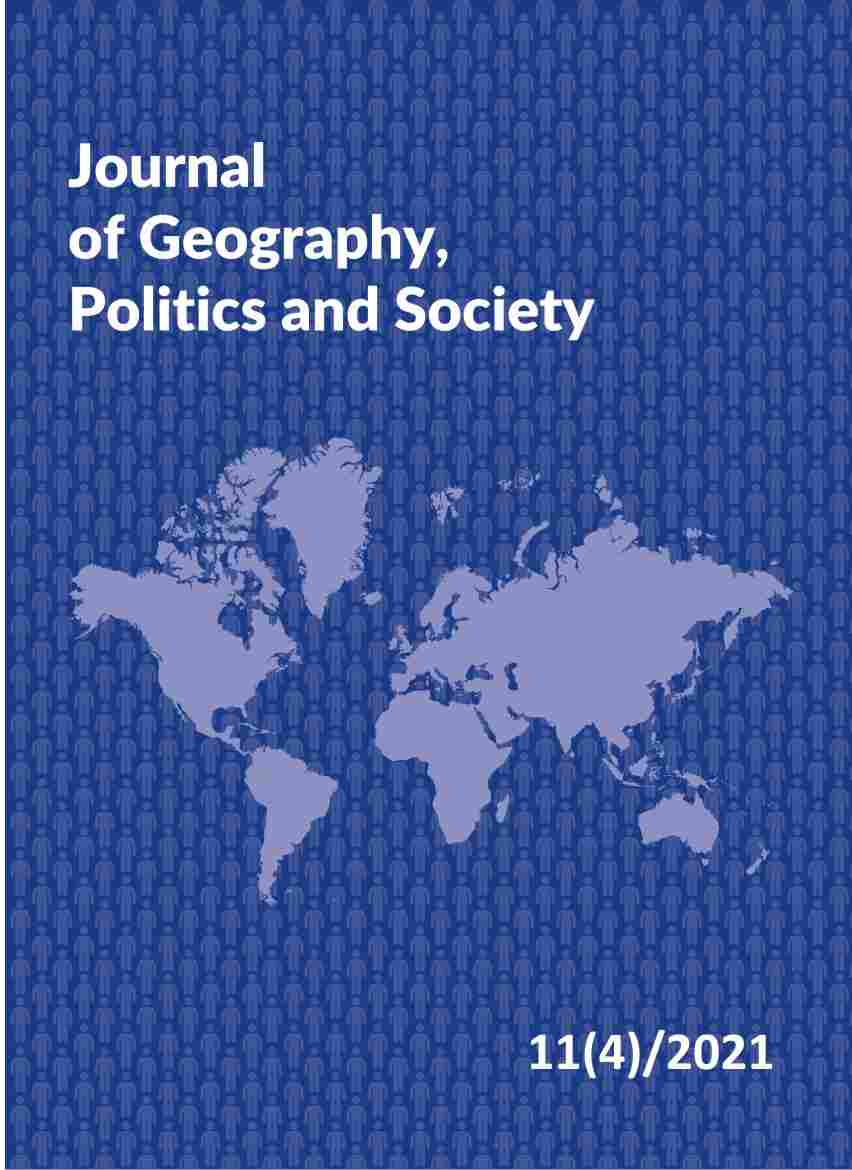Great Expectations: Gender and Political Representation in Georgia
DOI:
https://doi.org/10.26881/jpgs.2021.4.04Keywords:
women’s political participation in Georgia, women’s participation in politics, women in Georgian Parliament, women MPs, gender quotaAbstract
Gender equality is one of the main priorities of any democratic society. The developed world has long agreed that the participation of women in politics is a key condition for democratic development of the country. No country can ensure fair and equal-opportunity policy without the participation of women. It will take decades for women to naturally secure equal political participation. Therefore, in order to speed progress and to address inequalities, in 2020, after much resistance and disagreements, the statutory gender quota was adopted by the Georgian Parliament.
The purpose of this study is to examine the current situation regarding women’s participation in Georgian political life, to identify factors that have led to the implementation of the statutory gender quota, to access the efficiency of the state policies to increase women’s representation in political institutions and also to assess how incentive mechanisms devised in previous years have increased women’s representation in Georgian political life. The aim of the paper is to identify the main reasons that hinder women’s political involvement in Georgia. In the long term, it is necessary to maintain and increase the current gender quota to ensure equal representation.
Downloads
References
Barriers to Women’s Effective Participation in the Electoral Process, Electoral Knowledge Network, Gender and Elections, Ace, https://aceproject.org/ace-en/topics/ge/ge1/ge13 (accessed 11 March 2020).
Buckley M., 1985, Soviet Interpretations of the Woman Question, [in:] B. Holland (Ed.), Soviet Sisterhood, Indiana University Press, Bloomington, 24–53.
Carroll S.J., 1984, Woman Candidates and Support for Feminist Concerns: The Closet Feminist Syndrome, The Western Political Quarterly, 37(2), 307–323.
Celis K., Childs S., Kantola J., Krook M.L., 2008, Rethinking Women’s Substantive Representation, Representation, 44(2), 99–106. doi: 10.1080/00344890802079573.
Committee on the Elimination of Discrimination against Women (18 September 2014), 2014, Adopted by the Committee at its fifty-eighth session (30 June – 18 July 2014), https:// bit.ly/2ZKVYR5 (accessed 20 March 2021).
Dahlerup D., 1988, From a Small to a Large Minority: Women in Scandinavian Politics, Scandinavian Political Studies, 11(4), 275–298.
Darbaidze E., 2018, Increasing Women’s Political Participation in Georgia, Ideology and Politics, 2(10), 30–56.
Directorate General of Human Rights Council of Europe, 2003, Balanced participation of women and men in political and public decision-making. Recommendation Rec (2003) 3 adopted by the Committee of Ministers of the Council of Europe on 12 March 2003 and explanatory memorandum, https://rm.coe.int/1680519084 (accessed 10 March 2020).
Duerst-Lahti G., Mae Kelly R., 1995, On Governance, Leadership, and Gender, Gender Power, Leadership, and Governance, 293, 11–39.
Election Administration of Georgia, 2016, Parliamentary Elections in Georgia, https://cesko.ge/eng/elections/2020 (accessed 21 May 2020).
Electoral Knowledge Network, 2020, Gender and Elections: barriers to women’s effective participation in the electoral process, https://aceproject.org/ace-en/topics/ge/ge1/ ge13 (accessed 11 March 2020).
Evropuli Sakartvelo Genderul Kvotebs Sakonstitucio Sasamartloshi Gaasachivrebs, (Eng. European Georgia will appeal the gender quotas in the Constitutional Court), 2021, Tabula, https://tabula.ge/ge/news/671462-evropulisakartvelo-genderul-kvotebs (accessed 19 August 2021).
Exhibition honours women of Georgia’s first Constituent Assembly in 1919–1921, 2015, Agenda, https://agenda.ge/en/ news/2015/2159 (accessed 21 May 2021).
Gadatskvetileba N3/3/1526 (Eng. Judgment N3/3/1526), 2020, Constitutional Court of Georgia, https://www.constcourt. ge/ka/judicial-acts?legal=10127 (accessed 10 March 2021).
Georgian Young Lawyers’ Association, 2017, Women’s Involvement in Political Processes in Georgia, https://gyla.ge/en/ post/qalta-chartuloba-politikur-procesebshi (accessed 20 May 2019).
Global Gender Gap report 2020, 2020, World Economic Forum, Cologny/Geneva.
IPU Parline Global Data on National Parliaments, 2021, Historical Data on Women, https://data.ipu.org/node/64/elections/historical-data-on-women?chamber_id=13401& fbclid=IwAR13teA9olAOXW-TO57medGHeeydVsJLtiYwDq4poKSNr2wPZD7gnTICrM (accessed 09 December 2021).
Kanoni Mokalaketa Politikuri Gaertianebis Shesaxeb 30 (71) (Eng. Organic Law of Georgia on Political Union of Citizens, Article 30 (71)), 1997, Legislative Herald of Georgia, https://matsne.gov.ge/ka/document/view/28324 (accessed 10 March 2021).
Metreveli V., 2003, History of Georgian Law, Publisher Tbilisi Meridiani, Tbilisi. Norris P., 2000, Women’s Representation and Electoral Systems, [in:] R. Rose (Ed.), In The International Encyclopedia of Elections, CQ Press, Washington, 348–351.
Number of Parliament Memebers of Georgia (Persons), Gender Statistics 2020, Geostat – National Statistics Office of Georgia, http://gender.geostat.ge/gender/index. php?action=Influence%20and%20Power (accessed 11 May 2021).
Phillips, A. (1995). The Politics of Presence. Oxford: Oxford University Press.
Rustaveli Sh.,1966, The Man in the Panther’s Skin, Translation of Marjory Scott Wardrop Tbilisi, Literatura da Khelovneba, Tbilisi.
Sazogadoebis damokidebuleba genderuli tanastsorobis mimart politikasa da biznesshi (Eng. Public Perceptions on Gender Equality in Politics and Business), 2013, https:// www.ge.undp.org/content/georgia/ka/home/library/ democratic_governance/public-perceptions-on-genderequality-in-politics-and-business.html (accessed 3 March 2021).
UNDP and UNFPA Georgia, 2020, Men, Women, and Gender Relations in Georgia: Public Perceptions and Attitudes. Research Report, https://www.ge.undp.org/content/georgia/en/home/library/democratic_governance/gendersurvey-report.html (accessed 15 July 2021).
UNFPA Division of Communications and Strategic Partnerships, 2020, State of World Population, https://georgia. unfpa.org/sites/default/files/pub-pdf/state_of_world_ population_2020_0.pdf (accessed 1 March 2021).
United Nations, 1995, Beijing Declaration and Platform for Action, Beijing: UN, https://www.un.org/en/events/pastevents/pdfs/Beijing_Declaration_and_Platform_for_Action.pdf (accessed 25 February 2020).
Women and Men in Georgia 2020, 2021, Geostat – National Statistics Office of Georgia, Tbilisi. https://www.geostat.ge/ en/single-news/2165/women-and-men-in-georgia-2020 (accessed 10 May 2021).
Women in National Parliaments, 2021, Inter-Parliamentary Union, https://www.ipu.org/women-in-politics-2021 (accessed 19 May 2021).

 Academic Scientific Journals
Academic Scientific Journals




